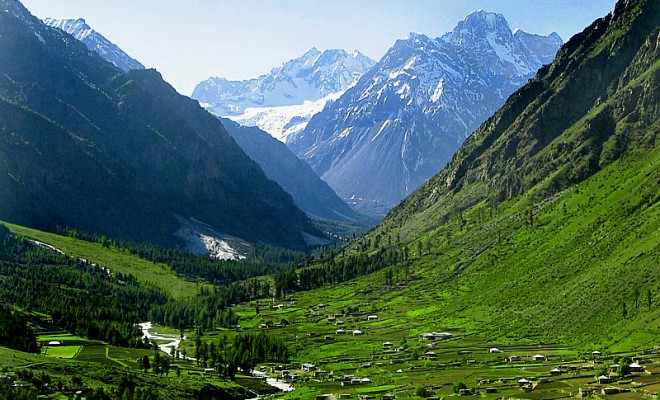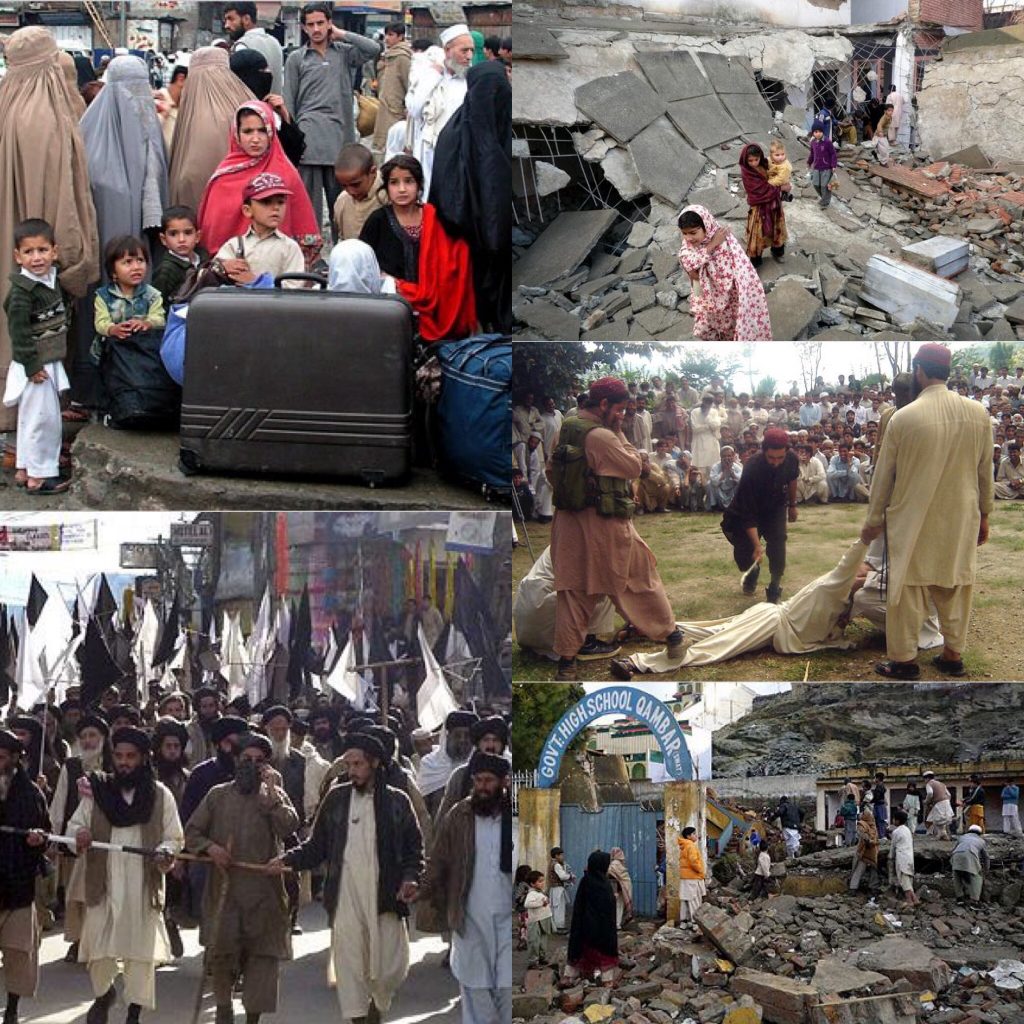By Dawood Shah

I, Dawood, am a resident of the Swat valley. Swat is locally known as the Switzerland of Pakistan due to its beautiful green mountains, its picturesque valleys, and above all its beautiful people. Situated in the Northwest of Pakistan it has a population of two million people and the most visited tourist destinations of Pakistan till 2005. This beautiful paradise was turned into a conflict zone in 2006, when a local hardline cleric named MolviFazlullah, launched his illegal FM radio station, persuading the valley’s people to join his supporters and wage jihad on the stateof Pakistan for allying with the U.S in the latter’s War on Terror(WoT). Many people believe that Fazlullah was the outcome of the 2001 U.S campaign against the Afghan Taliban regime in the aftermath of 9/11 attacks in the U.S. The insurgencies on the U.S. forces in Afghanistan also spilled over and affected the western regions of Pakistan bordering Afghanistan. Swat, which situates in close proximity to the war-torn FATA andAfghanistan was one of them.

Swat was known for its liberal and progressive values and quality educational institutions, a society relatively forward looking than all the districts that exists in the surrounding. Fazlullah targeted these progressive values by hitting at girls education. Obscurantism was preached in which young peoples’sexual and reproductive rights were interpreted as a wrath of God, a strategy to obscure what is scientifically clear, attributing everything to God’s will. HIV/AIDS, for instance, was considered as God’s revenge on bad people. Less educated and unemployed young men joined his militia in their hundreds, swelling its ranks to around 6,000 foot soldiers. The State of Pakistan after huge losses to the social fabric of Swat, launched a military operation in 2008, too late to be effective. By thenFazlullah was already a phenomenon to have reckoned with. Instead of eliminating these militants, such military operations increased militancy, identifying the lack of official will to fight this war. In short, Swat was turned into a hub of Islamic militancy and extremism. Teenagers were turned into suicide bombers. My family, just like the two million Swat population, was the direct victim of this conflict, who suffered huge business and property losses due to Fazlullah extremism.
I was in college student back then. For me, the classroom was not the only place for education, but to engage people and play my role for my community. This was the basic purpose behind my joining Youth Peace Network (Aware Girls) and later joined a network “Coalition For Peace”.I began to feel from the start that our people were living in a state of denial regarding the slow poisoning of the social fabrics by the wave of religious extremism. The lack of free debate about religion has given birth to a culture in which ignorance has stigmatized our society.
What I wanted through the platform of Coalition for Peace was to pave a way for discussions which otherwise is not possible. My emphasis on engaging youngsters in group meetings is mainly due to their readiness to engage in free speech. I have found them curious enough to know what are happening around, which opens up a condition of possibility, a room to encourage them to talk, share and contest, if necessary. In this way, Coalition for Piece endeavors to protect and promote young people rights and responsibilities in a militancy-hit Swat, where religious obscurantism is already defeated following the 2009 military operation, but the culture of religious intolerance is still existing and will take much more efforts to be defeated through non-militarized peaceful means.This is what I am eager about, to facilitate these youngsters to live their lives as active and responsible citizens.
Conflict is not a given, natural phenomenon, it is the outcome of human actions, a tragedy with roots in policy level power politics or narrow mindedness at the quotidian (ethnic or tribal) level. The conflict from which my family and I suffered the most and about which I want to write here, qualified to be included in the first category, an example of State duplicity and discrimination. I want to show how this conflict affected my family and me and what I have learned from it.
While, I am very active on the ground in my activism towards peace through young people, attending SPP, I want to learn from the experiences and approaches of scholars and practitioners who work on some of the most difficult challenges our world faces today, including resolving conflict, ending all forms of violence, providing social justice, and creating more secure and developed societies by transforming the conditions and relationships of conflict. Through a process of self-reflection, gathering of theoretical and conceptual data and its application to real-world problems, I believe I will be the luckiest to have a chance of improving my approach.
In all the interactive sessions of the Summer Peacebuilding Program, be it conceptual inputs, visits to on the ground active organizations, or practical sessions of application of the learned knowledge, will serve as not only a self reflection of my mistakes but also help in taking my confidence and perfection to the next level.
After coming back to Pakistan, I want to strengthen my organization academically and practically to play its role in reviving the peace and tranquility of Swat. My ambition is to help my community and pay back to my Swat Valley and that people start calling it once again as the Switzerland of Pakistan.


